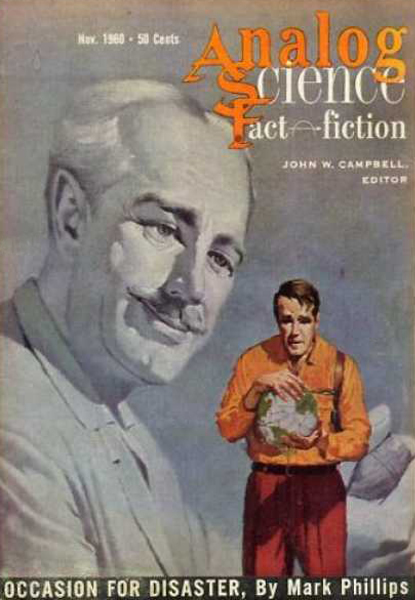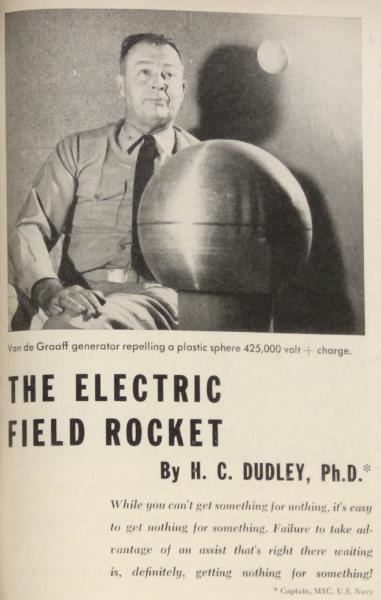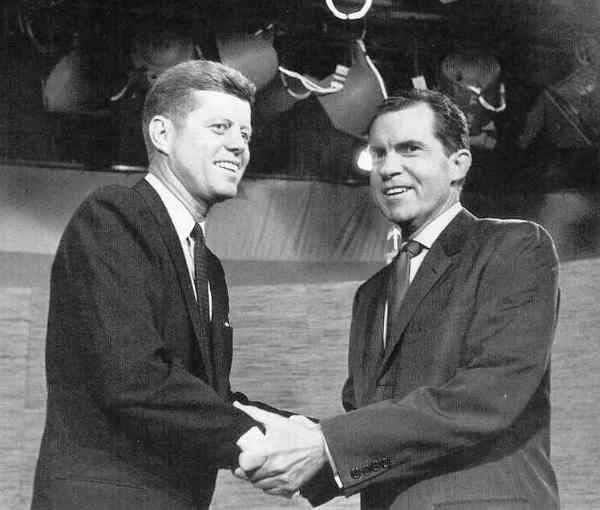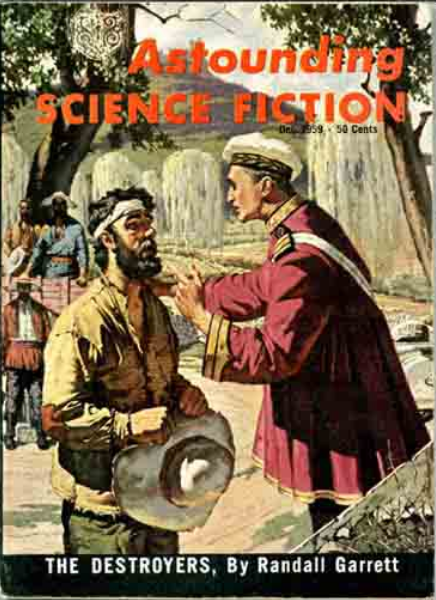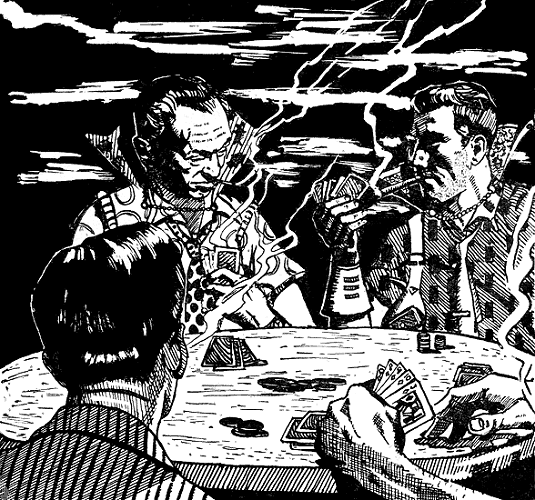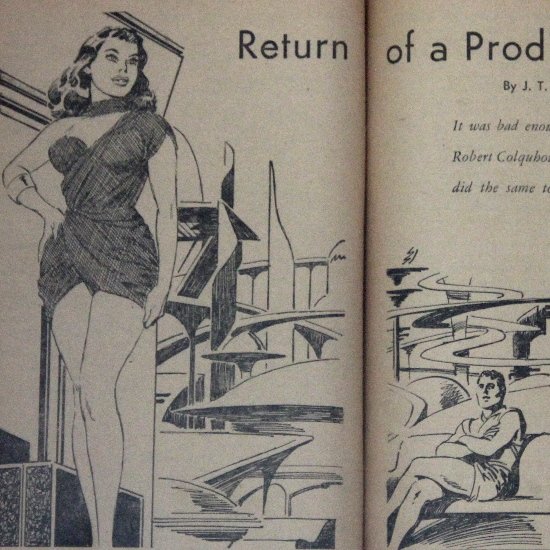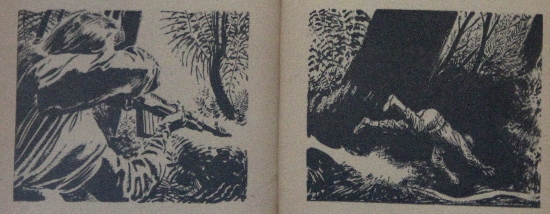
by Gideon Marcus
I read a lot of stuff every month. I consider it my duty, as your curator, to cover as broad a range of fiction as possible so that you can pick the stories most likely to appeal to you. What that means is I wade through a lot of stones to find the gems.
Analog is the magazine with the highest stone/gem ratio, I'm afraid. Nevertheless, it's rare that an issue goes by without something to recommend it, and the January 1962 edition has at least one genuine amethyst amongst the quartz.
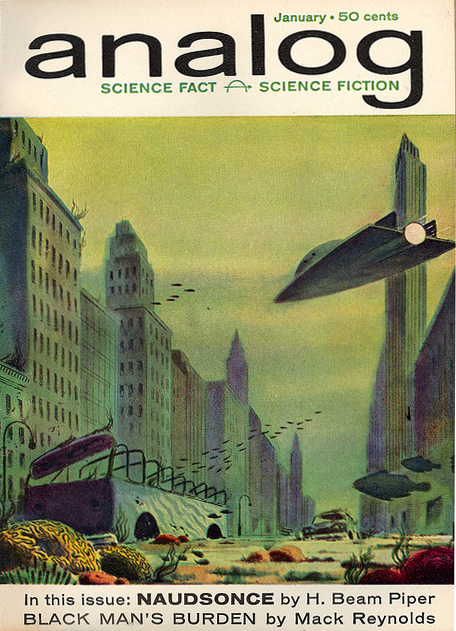
It is the first story, Naudsonce, by one of my favorite authors, H. Beam Piper. Like his earlier classic, Omnilingual, it is an extra-terrestrial linguistic puzzle story. Unlike the prior story, Naudsonce involves a living alien race, one with no discernible language, and which displays nonsensical reactions to human speech. Is telepathy involved? Is the Terran contact team missing a fundamental clue?
It's an interesting riddle, to be sure, but what really sells this story is the social commentary. From the beginning, we see that the human explorers, while not bad people, are interested in one thing: finding a colonizable planet. The concerns of the aboriginals are casually treated, and the callous, jaded attitude of the scouts is evident, particularly at the end. This kind of cynical self-awareness is quite rare for an Analog story, and it contrasts strongly with the utter lack of it in Mack Reynold's serial (see below). I also appreciated that the contact team was thoroughly integrated, ethnically and sexually; but then Piper has always been ahead of the curve on this issue. This diversity of characters highlights that the casual rapine associated with imperialism is not an ethnic problem, but a human one. Four stars.
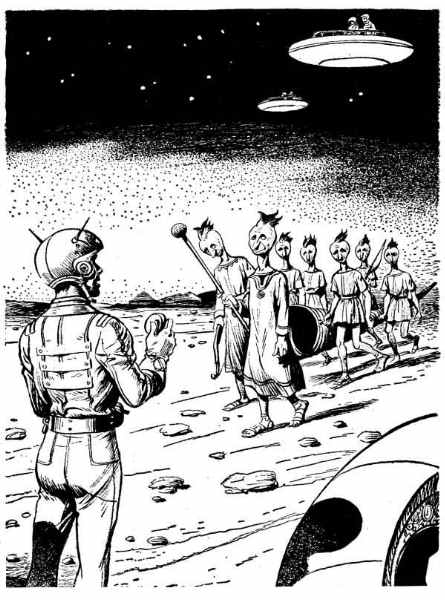
Idiot Solvant, by Gordon Dickson, is a story that could have been much better. The premise is exciting: You know how you often get flashes of inspiration when you are sleepy? Or a solution comes to you in a dream? Clearly, some magic happens when one's left brain relinquishes control and lets the right go wild. Something similar happens to the protagonist of Solvant, allowing him to accomplish some truly miraculous feats. What kills this story, however, is the several pages of exposition that set up the gimmick. Moreover, a story, especially a short story, only gets so much leeway before it exceeds its "hand-wave" allowance. Dickson asserts too many premises in too short a space. The result is a contrived mess. Two stars.
E.C. Tubb's Worm in the Woodwork is a competent interstellar thriller about an undertaking to save a Terran logician who has fallen into the hands of a hostile colonial star league. The thoughtful bits involving the captive genius, Ludec, are particularly engaging. Three stars.
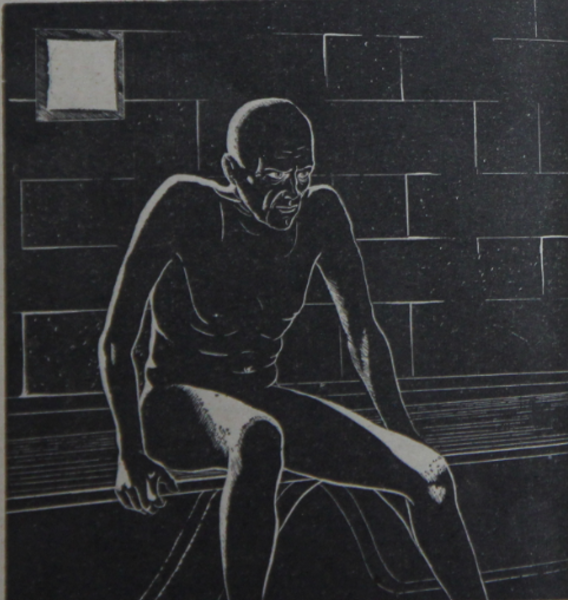
The science fact pieces continue to be where Analog falls down. Campbell went through the trouble of giving his magazine a "slick" section, using the kind of paper one normally finds in news periodicals like Time. Nevertheless, the articles often aren't worth the paper they're printed on. Big Boom in Forming, by Willis Cain, has an interesting topic – explosive formed metals (where big booms press metal plate against molds to make parts) – but the piece is, by turns, overly kiddie and excessively obtuse. Two stars.

Editor John Campbell's When the Glaciers Go is much worse, though. Some garbage about how rapid climate change (over the course of hours!) is evidenced by the frozen Mastodons in Siberia. The climate is changing, and our species is a big contributing factor these days, but it don't work like that. Bleah. One star.
That brings us to Black Man's Burden (Part 2 of 2), by Mack Reynolds. I had high hopes for this piece, about Afro-Americans spearheading efforts in Africa to promote democracy and progress. After all, Reynolds is an accomplished writer of political thriller, and he's spend a good deal of time in the Mahgreb. Africa, a continent that has seen nearly twenty new nations spring up in the wake of decolonization, is a rich (and unusual) setting.
In the end, however, Burden was a disappointment. While no one knows where Africa is heading, I like to think that, after the normal teething pains, its states will join the community of nations as vibrant, mature members. Reynolds' premise is that they simply can't, that without the aid of Westerners (Free or Communist), Africa will remain a tribal and/or despotic mess. Or at least, that's what the protagonists of the story all believe. At one point, it is even asserted that Islam is a dead-end for nation-building; no Islamic country on Earth has an advanced social system. I take particular umbrage with this idea given the flowering of the Moslem world in the "Middle Ages."
This idea that Africa must be boot-strapped into modernity by its abducted sons, the descendants of American slavery, is an insulting one. It slights Africans, and it paints a veneer of redemption on "that peculiar institution." There is a throwaway reference to the destruction of African culture in the process of "improving" it, but it feels perfunctory. Worst of all is this bland superiority that suffuses the whole thing. Africans are pawns. Americans are superior. I appreciate that the characters of Burden are all Black, but that quality is only skin-deep. It is, ultimately, a story of White Americans, who happen to be of dark hue. And unlike Naudsonce, it's played completely straight. 2 stars.
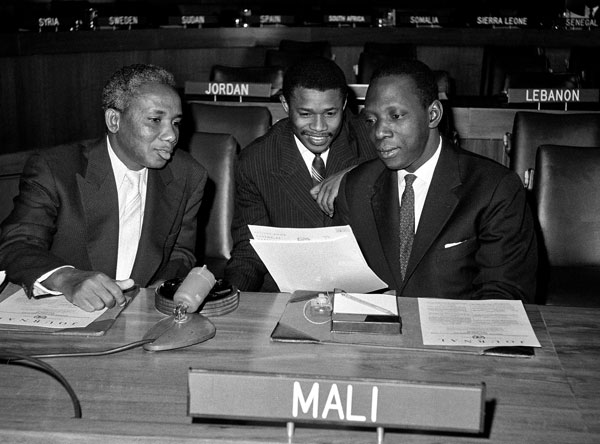
Sum it all together, and you've got a 2.3 star issue. This is worse than, well, any of the magazines that came out this month. If this is the digest that will win the Hugo, I've got a closet full of hats to eat…
…but Naudsonce is worth reading!

